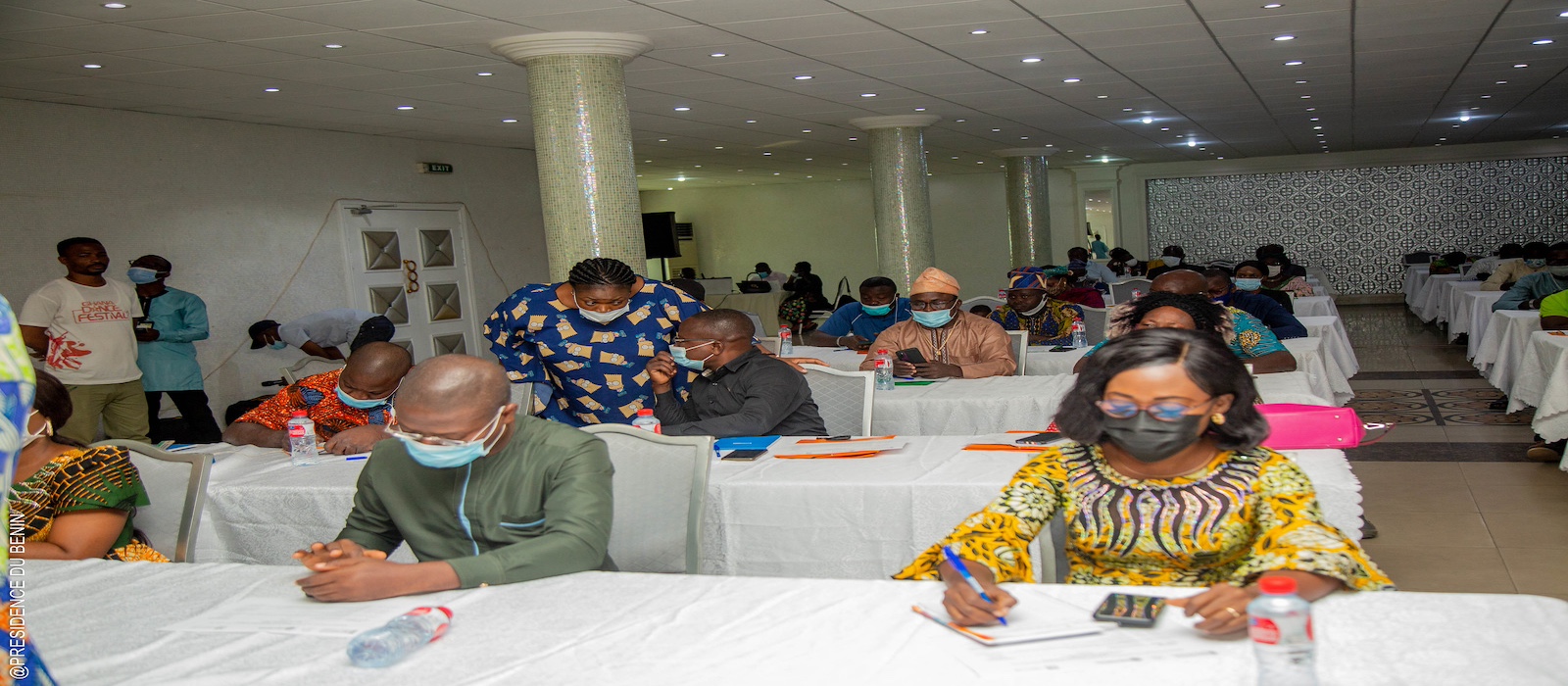Political Partisanship and Cooperation during the COVID-19 Pandemic in Benin

March 2022 Awareness Session for the Association of Grogneurs of Benin during the COVID-19 vaccination campaign | Marzio Costantini
Study Context
The consequences of the COVID-19 pandemic for vulnerable populations depends on the effectiveness of public response, trust, and government communication. Social distancing, hand washing, and face covering can rarely be enforced through coercion, particularly in democratic societies where political leaders must persuade the public to voluntarily comply. In many countries including Benin, partisanship could greatly influence how people in Benin respond to the pandemic.
Study Design
Researchers conducted phone and online surveys of 2,075 Beninese adults to capture their political affiliations and measure the effect of this on their compliance with voluntary measures, as well as whether it influences the overall perceptions of the COVID-19 pandemic.
Results and Policy Lessons
Results showed a reduced compliance with social distancing and face covering measures, respectively by 9.1 and 2.6 percentage points, when these measures were recommended by the leaders of respondents’ political party. Exploring a number of possible mechanisms, researchers found that these effects could be explained by differences in social media usage by partisans. Co-partisans perceived a lesser compliance of people surrounding them than out-partisans do in their community. These findings shed light on the consequences of political partisanship on the willingness to comply with public health recommendations.

